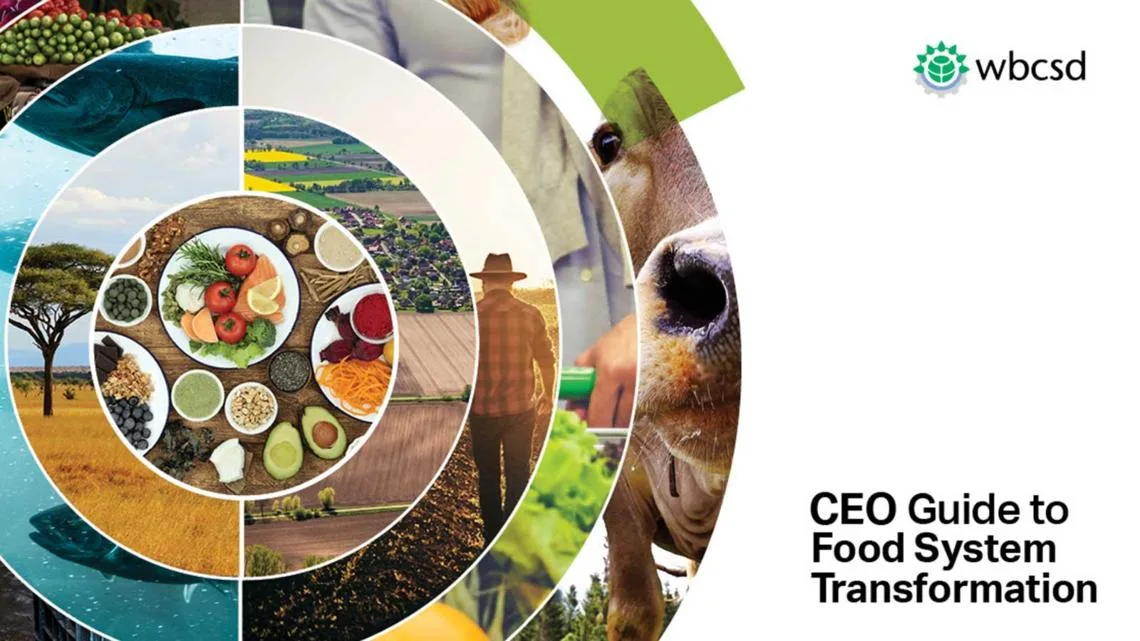WBCSD released the CEO Guide to Food System Transformation which outlines seven pathways and clear actions for CEOs to transform our food system in the next decade. It highlights the business leadership needed for a deep, rapid and systemic transformation of the food system to achieve healthy people and a healthy planet.
In the newest CEO Guide, launched at WBCSD’s Council Meeting in Lisbon, 17 top business executives from across the world call for urgent business leadership and action on addressing the changes needed to ensure that our food system is able to sustainably feed a growing population expected to reach over 10 billion by 2050.
Peter Bakker, WBCSD’s President and CEO: “There is no doubt about the need to act now; we have seen a flurry of science and reports highlighting the need for urgent action. However, so far none of these reports have focused on the business leadership needed to provide the critical solutions for the food system transformation.”
He continues: “The time for bold leadership starts now. 2020 will be a super year of ambition and performance ratcheting for climate, nature and nutrition, leading into what will be the first UN Global Food Summit in 2021, towards the Earth Summit in 2022. Together we will drive the work which shows that business is championing this agenda to successfully achieve healthy people and a healthy planet – a world where more than 9 billion people are all living well and within the boundaries of our planet, by 2050. Because we are either in to lead, or we will let the world fail.”
The CEO Guide to Food System Transformation sets out seven pathways across the value chain where business must lead action, leveraging opportunities for risk mitigation but importantly also strategic advantage. These seven pathways as well as the Guide’s action points for CEOs are aligned with the findings of the FOLU report and other milestone science reports published in 2019 and will guide our work together in the coming years. There will be disruptions and tradeoffs for farmers, businesses and governments. We will prioritize our work together for impact at scale, both in value chains and by demonstrating business leadership, providing others with the courage and understanding of how to participate.

